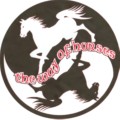
THE WAY OF HORSES |


Copyright © thewayofhorses
Eleanor
Richards |
MARE'S MILK By Eleanor Richards Copyright @ 2005 Would you like to join me for a glass of airag? Yes? Great! But, before we can enjoy our beverage, we need to find a lactating mare and hope the foal will share---or we can wean the foal. Mare's milk is very high in protein, fat and trace minerals in early lactation. But as time passes the nutrients in the milk decrease. Colostrum, the first fluid produced by the mare, has a protein level of approximately 75% (dry matter basis). Colostrum also contains the antibodies needed by the foal to fight infection and disease. Within 12 hours of birth, the colostrum starts to change to milk. The protein level drops to about 33%. The calcium level is approximately 0.68%, phosphorus: 0.35%, copper is at 7 ppm (parts per million) and zinc is about 24 ppm. By the time the foal reaches 12 weeks of age, the quality of some nutrients in his mother's milk as dropped dramatically. The protein is to about 18%, calcium: 0.80%, phosphorus: 0.50%; copper is at 2 ppm and zinc at 18 ppm. The nutritional requirements for a foal at the age of 3 - 4 months are: crude protein: 16%; calcium: 0.70%, phosphorus: 0.50%, copper: 20 - 30 ppm and zinc: 40 - 60 ppm. It's easy to see the mare's milk is not meeting the nutritional requirements of the foal. There are other nutrients in mare's milk, but I only mentioned protein, calcium, phosphorus, copper and zinc because these trace minerals are very important to the growing foal. Protein has been blamed for causing developmental orthopedic disease (DOD). But growing foals need protein for muscle growth, bone development, hooves, maintaining healthy red blood cells and skin. It is not the protein causing the problem - unless it is a lack of good quality protein. Research has shown one of the causes of DOD is probably imbalances and deficiencies in minerals; specifically calcium, phosphorus, copper and zinc. Trying to supplement the mare's diet with the goal of increasing the copper and zinc levels in her milk will not work. The foal depends on his store of these trace minerals that he got from his mother while in utero. For this reason it is very important the broodmare receives premium nutrition during the last 90 days of pregnancy. It is during this time the foal is storing the trace minerals in his liver that will sustain him through the first 3 months of life - until he starts to eat and utilize solid food. By the time a foal reaches 4 months of age his cecum (the part of the large intestine that breaks down insoluble fiber) will be working. He should be receiving a good quality foal feed that meets his nutritional requirements and makes up for the lack of trace minerals in his mother's milk. Once the foal is weaned we can have our airag, which is made from fermented mare's milk and is served in a bowl. I'll let you drink the first bowl…..let me know how it tastes. |